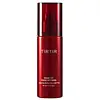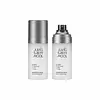What's inside
What's inside
 Benefits
Benefits

 Concerns
Concerns

 Ingredients Side-by-side
Ingredients Side-by-side

Water
Skin ConditioningAlcohol Denat.
AntimicrobialPentylene Glycol
Skin ConditioningButylene Glycol
HumectantCentella Asiatica Extract
Cleansing1,2-Hexanediol
Skin ConditioningPEG-60 Hydrogenated Castor Oil
EmulsifyingPolyglyceryl-2 Oleate
EmulsifyingPolyacrylic Acid
Emulsion StabilisingOctyldodeceth-16
EmulsifyingSodium Citrate
BufferingCitric Acid
BufferingSodium Polyacrylate
AbsorbentPvp
Emulsion StabilisingTriethyl Citrate
MaskingOnsen-Sui
Butylene Glycol
HumectantGlycerin
HumectantGlycereth-26
HumectantPropanediol
Solvent1,2-Hexanediol
Skin ConditioningPhenoxyethanol
PreservativePEG-60 Hydrogenated Castor Oil
EmulsifyingPolyglyceryl-2 Oleate
EmulsifyingDiphenyl Dimethicone
EmollientWater
Skin ConditioningTriethylhexanoin
MaskingHydrogenated Lecithin
EmulsifyingEthylhexylglycerin
Skin ConditioningParfum
MaskingSodium Citrate
BufferingDisodium EDTA
Citric Acid
BufferingOctyldodeceth-16
EmulsifyingHydrolyzed Pearl
Skin ConditioningPolyester-5
Saccharomyces Ferment
Skin ConditioningTillandsia Usneoides Extract
Skin ConditioningEthyl Hexanediol
SolventChamomilla Recutita Flower Water
MaskingOnsen-Sui, Butylene Glycol, Glycerin, Glycereth-26, Propanediol, 1,2-Hexanediol, Phenoxyethanol, PEG-60 Hydrogenated Castor Oil, Polyglyceryl-2 Oleate, Diphenyl Dimethicone, Water, Triethylhexanoin, Hydrogenated Lecithin, Ethylhexylglycerin, Parfum, Sodium Citrate, Disodium EDTA, Citric Acid, Octyldodeceth-16, Hydrolyzed Pearl, Polyester-5, Saccharomyces Ferment, Tillandsia Usneoides Extract, Ethyl Hexanediol, Chamomilla Recutita Flower Water
 Reviews
Reviews

Ingredients Explained
These ingredients are found in both products.
Ingredients higher up in an ingredient list are typically present in a larger amount.
1,2-Hexanediol is a synthetic liquid and another multi-functional powerhouse.
It is a:
- Humectant, drawing moisture into the skin
- Emollient, helping to soften skin
- Solvent, dispersing and stabilizing formulas
- Preservative booster, enhancing the antimicrobial activity of other preservatives
Butylene Glycol (or BG) is used within cosmetic products for a few different reasons:
Overall, Butylene Glycol is a safe and well-rounded ingredient that works well with other ingredients.
Though this ingredient works well with most skin types, some people with sensitive skin may experience a reaction such as allergic rashes, closed comedones, or itchiness.
Learn more about Butylene GlycolCitric Acid is an alpha hydroxy acid (AHA) naturally found in citrus fruits like oranges, lemons, and limes.
Like other AHAs, citric acid can exfoliate skin by breaking down the bonds that hold dead skin cells together. This helps reveal smoother and brighter skin underneath.
However, this exfoliating effect only happens at high concentrations (20%) which can be hard to find in cosmetic products.
Due to this, citric acid is usually included in small amounts as a pH adjuster. This helps keep products slightly more acidic and compatible with skin's natural pH.
In skincare formulas, citric acid can:
While it can provide some skin benefits, research shows lactic acid and glycolic acid are generally more effective and less irritating exfoliants.
Most citric acid used in skincare today is made by fermenting sugars (usually from molasses). This synthetic version is identical to the natural citrus form but easier to stabilize and use in formulations.
Read more about some other popular AHA's here:
Learn more about Citric AcidOctyldodeceth-16 comes from the fatty-alcohol Octyldodecanol.
Emulsifers keep oils and water ingredients together to create a more even consistency.
Peg-60 Hydrogenated Castor Oil comes from hydrogenated castor oil. It is a solubilizer and emulsifier.
As a solubilizer, it helps dissolve ingredients into a water-based version. It is also an emulsifer. Emulsifier help prevent oils and water from separating. Both these properties help create evenly-spread and uniform products.
Basically, Peg-60 Hydrogenated Castor Oil helps hold ingredients together.
Learn more about PEG-60 Hydrogenated Castor OilPolyglyceryl-2 Oleate isn't fungal acne safe.
Sodium Citrate is the sodium salts of citric acid. In skincare, it is used to alter pH levels and acts as a preservative.
Its main functions are to maintain the pH of a product and neutralize metal ions.
The acidity of our skin is maintained by our glands and skin biome; normal pH level of skin is slightly acidic (~4.75-5.5).
Being slightly acidic allows our skin to create an "acid mantle". This acid mantle is a thin barrier that protects our skin from bacteria and contaminants.
Learn more about Sodium CitrateWater. It's the most common cosmetic ingredient of all. You'll usually see it at the top of ingredient lists, meaning that it makes up the largest part of the product.
So why is it so popular? Water most often acts as a solvent - this means that it helps dissolve other ingredients into the formulation.
You'll also recognize water as that liquid we all need to stay alive. If you see this, drink a glass of water. Stay hydrated!
Learn more about Water